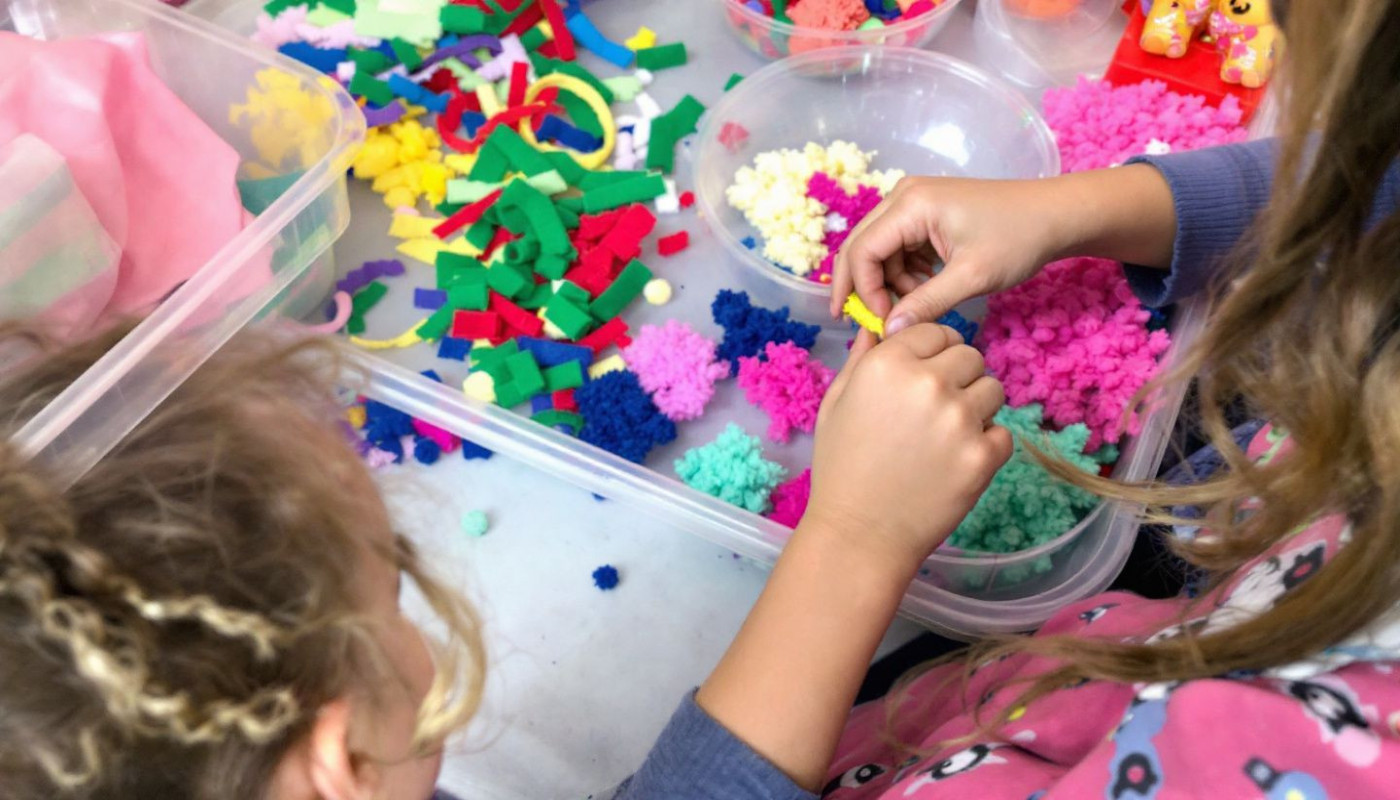Table of contents
Enhancing early childhood education doesn't require complex strategies or expensive resources. Simple weekend projects can offer engaging experiences that foster learning, creativity, and cognitive development in young children. Dive into the following sections to uncover practical and enjoyable ideas that can easily fit into any family's routine, making learning a joyful adventure for both children and their caregivers.
Creative arts and crafts
Engaging young children in creative arts and crafts activities offers a dynamic approach to early childhood development, blending fun with foundational learning. Weekend projects like painting, drawing, or constructing objects from recycled materials function as enjoyable preschool activities while also facilitating creative learning. These hands-on experiences help stimulate sensory skills by encouraging children to touch, mix, and experiment with various textures and colors. Such activities nurture self-expression by allowing children to communicate emotions and ideas visually, while also supporting cognitive development through problem-solving, decision-making, and imaginative thinking. As children plan and execute their projects, they learn to follow sequences, recognize patterns, and explore new concepts, all vital skills in early learning environments.
The development of fine motor skills is a key outcome of arts and crafts in preschool activities, as these tasks require the precise movement of small muscles in the hands and fingers. A highly skilled early childhood educator would explain that fine motor skills underpin abilities such as writing, buttoning clothes, and using utensils, which are indispensable for children's independence and academic success. By manipulating paintbrushes, crayons, safety scissors, or small recycled objects, children strengthen hand-eye coordination and control, building a solid foundation for future learning tasks. Encouraging creative projects at home not only fosters a love of creative learning but also supports overall growth in early childhood development.
Simple science experiments
Simple science experiments for kids, such as mixing baking soda and vinegar or tracking the growth of a bean sprout, serve as powerful gateways to early STEM education by nurturing an inquiring mindset. These engaging preschool science activities utilize hands-on learning, a technical term describing interactive methods where children directly manipulate materials and tools to explore scientific concepts. Through hands-on learning, young learners not only build foundational understanding of cause and effect but also develop problem-solving skills and the ability to form hypotheses. Discovery play—where children are actively engaged in exploring and questioning outcomes—strengthens their cognitive abilities and boosts their confidence in experimenting with new ideas. Integrating these straightforward science experiments into weekend routines provides families with approachable ways to spark curiosity and foster a lifelong interest in science, laying a strong groundwork for future academic success in STEM fields.
Interactive reading sessions
Interactive reading sessions stand as a dynamic foundation for language development in early childhood education, offering a lively range of storytime activities that go beyond simple narration. When adults and children participate in acting out stories or employ puppets, the experience transforms into an engaging process that allows children to connect words with actions, emotions, and visual cues. These interactive reading methods make stories memorable and foster a rich environment for building literacy skills, as children hear new vocabulary, observe sentence structures, and practice expressive language in both guided and spontaneous ways. Qualified reading specialists refer to language development as the progressive expansion of a child’s ability to communicate through listening, understanding, speaking, and eventually reading and writing; interactive elements during storytime activities provide multisensory stimulation, deepening this developmental process.
Including interactive reading in weekend projects enhances imagination as children are encouraged to invent dialogue, mimic characters, or suggest alternative endings. Utilizing props and puppets not only makes the reading experience more enjoyable but also reinforces comprehension and retention by involving children directly in the storytelling. These storytime activities promote turn-taking, listening skills, and empathy, equipping young learners with lifelong tools for effective communication. In early childhood education, such engaging techniques support literacy skills by embedding language in social, emotional, and cognitive development, setting a strong foundation for future academic achievement and a lasting love of reading.
Outdoor discovery adventures
Outdoor play offers young children a wealth of learning experiences, and simple weekend projects such as nature walks, bug hunts, and basic gardening provide direct benefits. These nature activities encourage physical development by engaging large muscle groups and refining coordination and balance during exploration. Exposure to different textures, sights, and sounds stimulates sensory processing, which is vital for early learning. Engaging in group activities outside, such as searching for insects or planting seeds together, fosters social skills as children communicate, share discoveries, and collaborate on tasks.
Through these outdoor play experiences, children naturally build a sense of environmental awareness—an understanding recognized as foundational by early years educator Dr. Maria Montessori. She emphasized that environmental awareness involves recognizing the interconnectedness between living things and their surroundings, which shapes empathy, responsibility, and curiosity in young minds. Introducing children to varied environments, such as gardens or local parks, supports holistic child development by blending cognitive growth with emotional and social well-being.
Families interested in integrating more nature activities into weekend routines will find practical advice and inspiration on that site, which details ways to incorporate Montessori-inspired projects for busy parents. Utilizing such resources supports ongoing early learning at home and helps children develop lifelong connections with the natural world.
Building with everyday materials
Engaging children in building activities using blocks, cardboard, or common household objects nurtures a variety of developmental strengths. These preschool construction experiences encourage young learners to experiment, collaborate, and think creatively, supporting the growth of problem-solving skills and teamwork for kids. By stacking, connecting, or designing structures together, children intuitively explore concepts such as balance, weight distribution, and symmetry, which directly enhance spatial reasoning. To clarify, the most qualified early childhood education expert would describe spatial reasoning as the mental ability to visualize and manipulate objects in space, a skill that forms the foundation for later success in mathematics, science, and everyday navigation. When children plan and execute building projects, they are not only enjoying hands-on play but also strengthening cognitive pathways that support analytical thinking and effective social interaction.
On the same subject

How Strategic Acquisitions Are Reshaping Tech Innovation?

Key Trends In Digital Photography On Social Platforms

Exploring The Impact Of AI In Revolutionizing Image And Logo Creation

How Instant Intelligence Testing Is Changing Educational Approaches

How to use chat gpt

Making use of ChatGPT: why is it important today?

